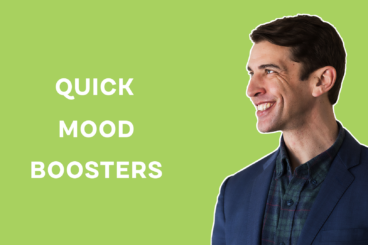As I speak with more groups, I find myself talking about more and more about connection as a brain function. After all, we say in biology that structure equals function. Meaning that if you look at a cell, its shape/structure tells you about what it does. Your brain is an organ of connection, trillions of them, and this of course is its most important function for us. When our brains and minds are healthy, we lead connected lives. That is my most clear measure of mental health in myself and in our patients.
This week, I am excited to connect with two great groups. On Thursday, Oct 20, I will be in Chicago speaking with some of the nation’s top researchers on disability at the University of Illinois College of Applied Health Sciences. I get to break out all my nerdy powerpoint data slides and talk about how food can help us fight the top driver of disability worldwide: mental illness. Friday, I am back in New York City and speaking at the W.E.L.L Summit along an incredible line-up of people: yogis, chefs, healers, digital gurus, and business innovators.
This summit is going to be a blast and the schedule of events and speakers represent the breadth of the wellness community. Check out the link below for more details. The good folks at W.E.L.L. asked me to explain more about my work and brain health, and I found myself talking about the love of our farm, my disdain of food fears (and fear mongering) and the power of connecting with your food. I wanted to share the interview with you, and more importantly, invite you to join us!
Get Tickets to W.E.L.L. Oct. 21
I hope to see you at the summit. May your day be filled with health and happiness….and connection!
Drew
Inside the W.E.L.L. Summit: An Interview With Dr. Drew Ramsey
Dr. Drew Ramsey broke onto the healthcare and wellness scene with with his first book The Happiness Diet, and then solidified his place as an expert with his second book, 50 Shades of Kale. The psychiatrist is a leading proponent of using dietary change to help balance moods, sharpen brain function and improve mental health. During his “day job,” Dr. Drew is an assistant clinical professor of psychiatry at Columbia University College of Physicians and Surgeons and in active clinical practice in New York City where his work focuses on the clinical treatment of depression and anxiety. Using the latest brain science and nutritional research, modern treatments and an array of delicious food he aims to help people live to their happiest, healthiest lives—and he’s one of our W.E.L.L. Summit keynote speakers on Friday evening! To give you a glimpse into his work and what he hopes to share at the W.E.L.L. Summit, we chatted with Dr. Drew about everything from milking goats to why the American diet may be responsible for a global health crisis. Read on for the inside scoop!
How would you introduce yourself to the W.E.L.L. Summit tribe?
I’m an Indiana farm boy turned NYC psychiatrist. But most importantly, I’m a husband and father.
My main professional identity is a physician and I’m ultimately here to serve. My life revolves around the brain and mental health, and I want to help us get into a conversation about mental wellness and how our everyday decisions impact brain health and happiness.
I grew up in poor, rural Indiana on a small farm with my parents. They were part of the homesteaders movement in the 1970s, and we moved to Indiana to connect with nature, each other and to foster self-sufficiency. I’m weaving all of that into my psychiatry background (where I’ve been practicing for 15 years), and hoping to change how we think about mental health and food. I’m coming from the perspective of your brain, taking the latest science on the brain and using it to guide us to a different set of food. I’m cutting through the diet fads and the controversy around food to narrow down what we should eat for optimal brain health and happiness.
How would you describe the connection between food and mental health?
Food is fundamental to mental health. The structure of your brain is literally determined by what you eat. Making a set of choices about food is the same as making a set of choices about mental wellness.
It’s partially about helping people move away from the damaging messages of fear around food, and replacing that with a state of fun and joy with food. I want to fill your plate with the rainbow, literally, with more colorful plants, for better brain health. But we also need to discuss the importance of controversial foods like meat and seafood—they have a place in our overall diet.
Brain health is about personalized nutrition; my job is to serve you where your diet is at in a non-judgmental way, and to tailor your food plan to YOU. I always tell people that there’s only one food plan on the planet, and it’s YOUR food plan. That’s the most fulfilling part of my career, working with individuals to see how we can positively impact their mental health by adjusting their food plan to fit them best.
Now, we can get into lots of “battles” about food choices, vegan vs. paleo, and the like, but my concern is more with how, as a country, we’re still eating excessive amounts of cheap meat and processed foods that are causing damage to our selves, our society and our planet.
I feel certain that the healthcare crisis our country is facing has been caused by diet—and the average American diet is responsible for our global epidemic of depression, heart disease and obesity. Food is the root cause because our healthcare system never asks about food or diet when patients come in. Our healthcare system and its practitioners don’t see how it has a role in embracing dietary changes to sustain health. I’m trying to change that.
I work with physicians around the country to incorporate food into their treatment plans, and between teaching brain nutrition at the annual American Psychiatric Association’s meeting for the last four years and my work with groups of physicians, I feel that we’re seeing a sea change. Ten years ago, my position was seen as risky, and I thought pushing nutrition might get me fired from my teaching position at Columbia University. But what we’re scared of is often the door we must walk through, and Columbia, as well as the APA, have embraced my work and helped to further the message.
I used to think of my background as a farm boy as separate from my work as a psychiatrist, but I was wrong. When those worlds come together, I find joy and contentment and gratitude. Who knew a kale plant could have so much power?
What can the W.E.L.L. Summit tribe do today to promote a healthy, happy brain?
The first step to finding contentment with food is to increase mindfulness. Sit in front of your meal for a few minutes and find curiosity and gratitude about it. Be present with the flavors and smells; ask, where did this come from? That gratitude, not a mindless, rushed consumption can create a foundation for health and wellness. On-the-go food = an out of balance life. Instead, try to be in deliberate, mindful communion with your meals.







I love this message your sending out. I’ve been a physical therapist for 17 years and have noticed a disturbing increase in the number of patients I see with auto-immune diseases. When I started to research this, I became utterly convinced that many of the inflammatory joint problems I’ve been seeing were at least in part related to diet. I’m interested to read about the link between diet and mental health. Interesting coincidence – I think we went to Earlham together.